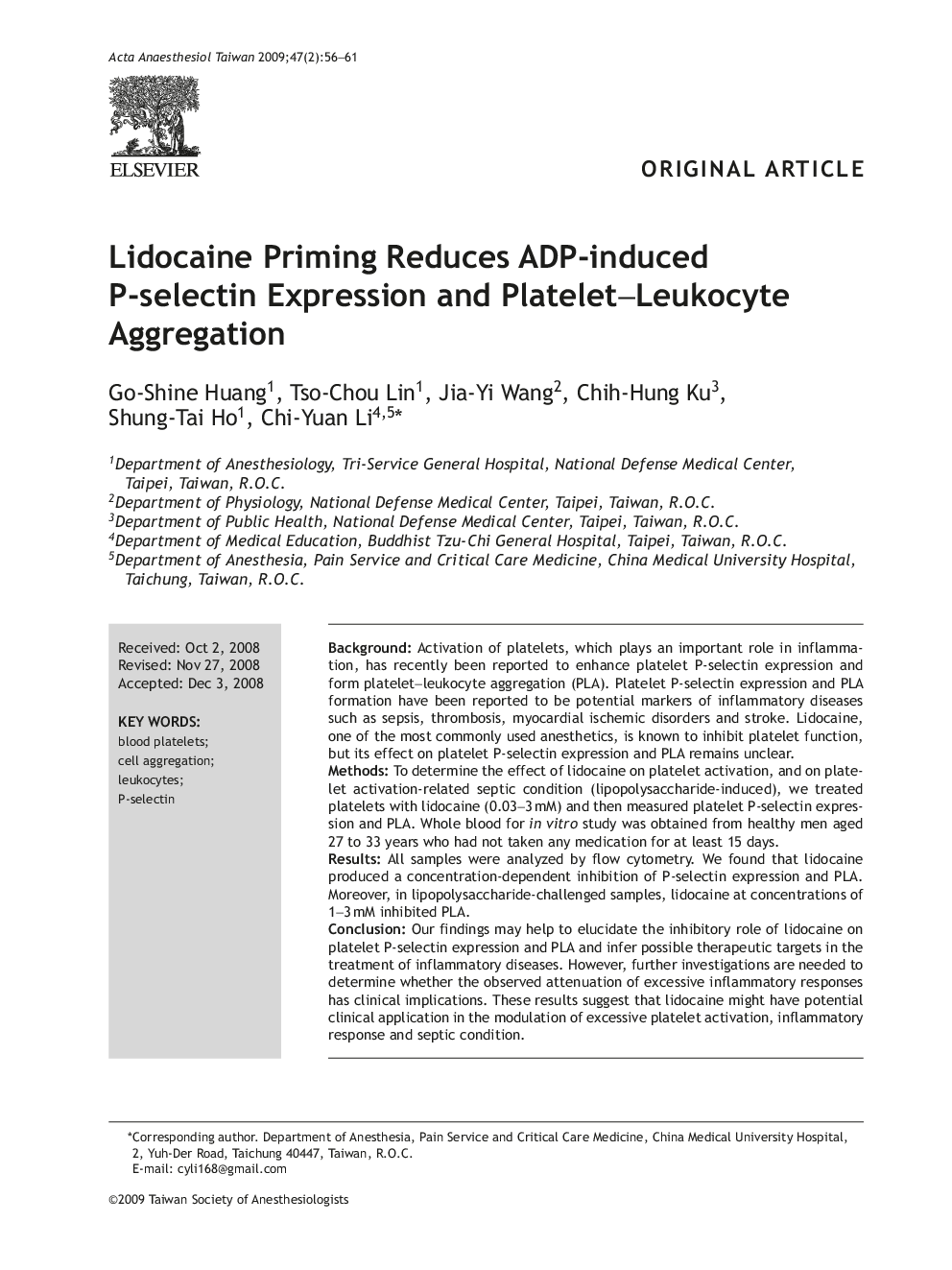| Article ID | Journal | Published Year | Pages | File Type |
|---|---|---|---|---|
| 2741601 | Acta Anaesthesiologica Taiwanica | 2009 | 6 Pages |
BackgroundActivation of platelets, which plays an important role in inflammation, has recently been reported to enhance platelet P-selectin expression and form platelet-leukocyte aggregation (PLA). Platelet P-selectin expression and PLA formation have been reported to be potential markers of inflammatory diseases such as sepsis, thrombosis, myocardial ischemic disorders and stroke. Lidocaine, one of the most commonly used anesthetics, is known to inhibit platelet function, but its effect on platelet P-selectin expression and PLA remains unclear.MethodsTo determine the effect of lidocaine on platelet activation, and on platelet activation-related septic condition (lipopolysaccharide-induced), we treated platelets with lidocaine (0.03–3 mM) and then measured platelet P-selectin expression and PLA. Whole blood for in vitro study was obtained from healthy men aged 27 to 33 years who had not taken any medication for at least 15 days.ResultsAll samples were analyzed by flow cytometry. We found that lidocaine produced a concentration-dependent inhibition of P-selectin expression and PLA. Moreover, in lipopolysaccharide-challenged samples, lidocaine at concentrations of 1–3 mM inhibited PLA.ConclusionOur findings may help to elucidate the inhibitory role of lidocaine on platelet P-selectin expression and PLA and infer possible therapeutic targets in the treatment of inflammatory diseases. However, further investigations are needed to determine whether the observed attenuation of excessive inflammatory responses has clinical implications. These results suggest that lidocaine might have potential clinical application in the modulation of excessive platelet activation, inflammatory response and septic condition.
